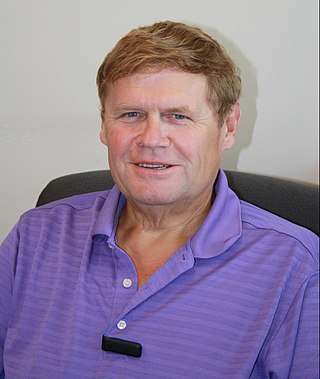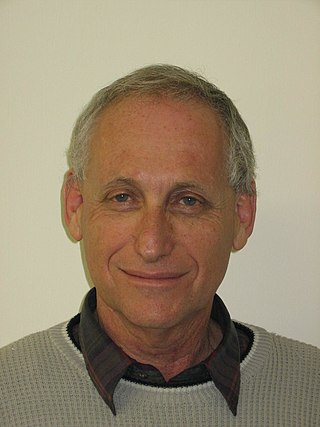Applied psychology is the use of psychological methods and findings of scientific psychology to solve practical problems of human and animal behavior and experience. Educational and organizational psychology, business management, law, health, product design, ergonomics, behavioural psychology, psychology of motivation, psychoanalysis, neuropsychology, psychiatry and mental health are just a few of the areas that have been influenced by the application of psychological principles and scientific findings. Some of the areas of applied psychology include counseling psychology, industrial and organizational psychology, engineering psychology, occupational health psychology, legal psychology, school psychology, sports psychology, community psychology, neuropsychology, medical psychology and clinical psychology, evolutionary psychology, human factors, forensic psychology and traffic psychology. In addition, a number of specialized areas in the general area of psychology have applied branches. However, the lines between sub-branch specializations and major applied psychology categories are often mixed or in some cases blurred. For example, a human factors psychologist might use a cognitive psychology theory. This could be described as human factor psychology or as applied cognitive psychology. When applied psychology is used in the treatment of behavioral disorders there are many experimental approaches to try and treat an individual. This type of psychology can be found in many of the subbranches in other fields of psychology.
Kim Vicente is an inactive professor of Mechanical and Industrial Engineering at the University of Toronto. He was previously a researcher, teacher, and author in the field of human factors. He is best known for his two books: The Human Factor and Cognitive Work Analysis.
Cognitive ergonomics is a scientific discipline that studies, evaluates, and designs tasks, jobs, products, environments and systems and how they interact with humans and their cognitive abilities. It is defined by the International Ergonomics Association as "concerned with mental processes, such as perception, memory, reasoning, and motor response, as they affect interactions among humans and other elements of a system. Cognitive ergonomics is responsible for how work is done in the mind, meaning, the quality of work is dependent on the persons understanding of situations. Situations could include the goals, means, and constraints of work. The relevant topics include mental workload, decision-making, skilled performance, human-computer interaction, human reliability, work stress and training as these may relate to human-system design." Cognitive ergonomics studies cognition in work and operational settings, in order to optimize human well-being and system performance. It is a subset of the larger field of human factors and ergonomics.

Tihomir Atanassov Dovramadjiev, born on 22 May 1979 in Varna, Bulgaria; also known as Tihomir Titschko and as TigerTAD on the Playchess server, is a Bulgarian chess FIDE master and chess boxer. He became the first European chess boxing champion from Berlin, Germany, in 2005. with both World Chess Boxing Organisation - WCBO and World Chess Boxing Association - WCBA acknowledgments. He has held the International Chess Federation - FIDE title of FIDE master since 2004. Recently, he has held the position of associate professor in the Department of Industrial Design at the Technical University of Varna.
Affective design describes the design of user interfaces in which emotional information is communicated to the computer from the user in a natural and comfortable way. The computer processes the emotional information and adapts or responds to try to improve the interaction in some way. The notion of affective design emerged from the field of human–computer interaction (HCI), specifically from the developing area of affective computing. Affective design serves an important role in user experience (UX) as it contributes to the improvement of the user's personal condition in relation to the computing system. The goals of affective design focus on providing users with an optimal, proactive experience. Amongst overlap with several fields, applications of affective design include ambient intelligence, human–robot interaction, and video games.
Engineering psychology, also known as Human Factors Engineering, is the science of human behavior and capability, applied to the design and operation of systems and technology. As an applied field of psychology and an interdisciplinary part of ergonomics, it aims to improve the relationships between people and machines by redesigning equipment, interactions, or the environment in which they take place. The work of an engineering psychologist is often described as making the relationship more "user-friendly."
Dylan Schmorrow is an American scientist and retired United States Defense Official. He is currently the chief scientist at Soar Technology, Inc.. He is a retired US Navy captain, and served as the deputy director of the Human Performance, Training, and BioSystems Research Directorate at the Office of the Assistant Secretary of Defense, Research & Engineering at Office of the Secretary of Defense. He was also specialty leader of the Aerospace Experimental Psychologist community and an acquisition professional in the Naval Acquisition Corps.

Industrial engineering is an engineering profession that is concerned with the optimization of complex processes, systems, or organizations by developing, improving and implementing integrated systems of people, money, knowledge, information and equipment. Industrial engineering is central to manufacturing operations.

Karl Ulrich Smith was an American physiologist, psychologist and behavioral cybernetician.

The Journal of Cognitive Engineering and Decision Making is a quarterly peer-reviewed academic journal that covers research on human cognition and the application of this to the design and development of system interfaces and automation. Its editor-in-chief is Jan Maarten Schraagen. It was established in 2007 and is currently published by SAGE Publications in association with the Human Factors and Ergonomics Society.
Anthony D. Andre is a researcher, practitioner, and academic in the fields of human factors, ergonomics, usability and product design. He is the founding principal of Interface Analysis Associates, an international human factors and ergonomics consultancy. Andre pioneered the behavioral approach to ergonomics which included behavior modification and computer skill development as its basis, in direct opposition to common product-based approaches. He is a founding member and adjunct professor of the HF/E Graduate Program at San Jose State University. He founded the International Conference on Human Factors and Ergonomics in Health Care, co-created the Ergo-X conference, managed the ergonomic content for several of the annual California Association of Rehabilitation and Re-employment Professionals (CARRP) conferences, and recently produced, hosted, and presented a COVID-19 ergonomics virtual summit on how to work/school from home more safely and comfortably. He has served as president of the Human Factors and Ergonomics Society. Andre is a Certified Professional Ergonomist (CPE), recognized by the Board of Certification of Professional Ergonomists (BCPE).
The Theoretical Issues in Ergonomics Science (TIES) journal is an interdisciplinary peer-reviewed academic journal covering research in human factors and ergonomics. Unlike other ergonomics journals that deal primarily with applications, TIES focuses on theoretical aspects of the science. The journal was established in 2000 and is published by Taylor & Francis. The co-editors are Waldemar Karwowski and Dylan Schmorrow. TIES publishes 6 issues per year, and it is affiliated with the International Conference on Applied Human Factors and Ergonomics.

Human factors and ergonomics is the application of psychological and physiological principles to the engineering and design of products, processes, and systems. Primary goals of human factors engineering are to reduce human error, increase productivity and system availability, and enhance safety, health and comfort with a specific focus on the interaction between the human and equipment.
Jens Rasmussen was a system safety, human factors and cognitive systems engineering researcher at the Risø National Laboratory in Risø, Denmark. He was highly influential within the field of safety science, human error and accident research. His contributions include the skills, rules, knowledge (SRK) framework, risk management framework, dynamic safety model, AcciMap Approach, and others.

The Institute of Industrial and Systems Engineers (IISE), formerly the Institute of Industrial Engineers, is a professional society dedicated solely to the support of the industrial engineering profession and individuals involved with improving quality and productivity.
Usage perspective development, UPD, describes a procedure from human factors and ergonomics, which analyses and integrates the user requirements already at the beginning of the development process and thus uses them to develop innovative socio-technical solutions. To accomplish this, the user needs are identified along the usage chain of a technical product, and subsequently used for the requirements that allow a current state evaluation and a target definition.

Gavriel Salvendy is a pioneer in the field of human factors and ergonomics. In 1990, he was elected a member of the National Academy of Engineering (NAE) for fundamental contributions to and professional leadership in human, physical and cognitive aspects of engineering systems.

Peter Adrian Hancock is a British-American scientist of human factors and ergonomics, author, and expert witness. He is a Provost Distinguished Research Professor in the Department of Psychology and the Institute for Simulation and Training, as well as the Department of Civil and Environmental Engineering and the Department of Industrial Engineering and Management Systems at the University of Central Florida. He is the research director of the Minds in Technology−Machines in Thought research laboratory at the University of Central Florida.
Aviation psychology, also known as aerospace psychology, is a branch of psychology that studies psychological aspects of aviation, increasing efficiency improving selection of applicants for occupations, identification of psychological causes of aircraft accidents, and application of cognitive psychology to understand human behaviors, actions, cognitive and emotional processes in aviation, and interaction between employees. Aviation psychology originated at the beginning of the 1920s with the development of aviation medicine and work psychology in the USSR. Human separation from earth leads to a drastic change in spatial orientation; accelerations, drops in barometric pressure, changes in atmospheric composition, can have a substantial effect on the nervous system, and requires uninterrupted concentration and rapid decisions. Currently, research in aviation psychology develops within the framework of engineering psychology.

Daniel Gopher is a professor (Emeritus) of Cognitive psychology and Human Factors Engineering at the Faculty of Industrial Engineering and Management, Technion - Israel Institute of Technology. He held the Yigal Alon Chair for the Study of Humans at Work at the Technion. Gopher is a fellow of the Human Factors and Ergonomics Society, the Psychonomic Society and the International Ergonomics Association.








